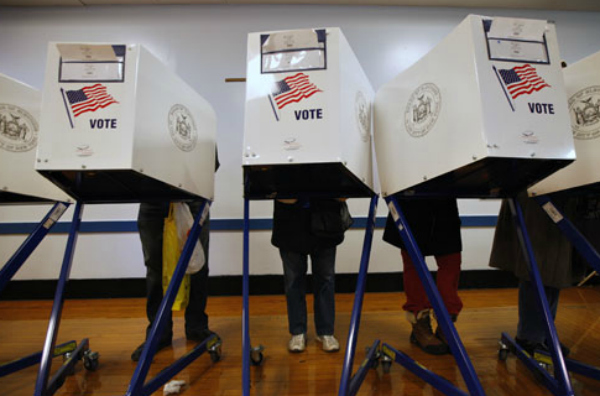A federal judge on Tuesday struck down Wisconsin’s voter ID law claiming that it denies the constitutional guarantee of equal protection, and it could keep someone from voting just because the voter didn’t have a photo ID. So why isn’t it also unconstitutional to force someone to present a photo ID, plus submit to a background check, to buy a gun from a dealer?
Videos by Rare
Wisconsin radio talk show host Vicki McKenna raised this point with me, and it’s a good one.
U.S. District Judge Lynn Adelman ruled that Wisconsin’s law requiring voters to show a photo ID imposed an unfair burden on poor and minority voters and therefore violated the U.S. Constitution.
Judge Adelman may be swimming upstream. According to the National Conference of State Legislatures, 34 states have passed laws requiring voters to show some form of identification. Some of those laws are stricter than others—e.g. requiring a photo ID rather than some form of identification—but some of those laws are set to get stricter over time.
Photo ID proponents frequently point out that you have to show an ID to do almost anything today: go to the bank, check into a hotel, get on an airplane or train, apply for government-provided benefits such as Social Security, etc.
But the best example is when a visitor tries to go to the office of some Washington, D.C.-based group that fights voter ID laws; that visitor usually has to show an ID to get past the front desk.
Of course, American citizens do not have a constitutional right to check into a hotel or fly on an airplane, so ID opponents can reasonably claim that those instances are different.
But neither do U.S. citizens have a constitutional right to vote; they only have a constitutional right not to be discriminated against when voting. And so photo ID opponents argue that any artificial barriers that might exclude some are therefore unconstitutional.
However, citizens do have a constitutional—Second Amendment—right to keep and bear arms. And yet the left, including President Barack Obama, has worked tirelessly to impose roadblocks and limitations on buying guns.
You can’t go into a gun store and buy a gun without showing a photo ID and even being subjected to a background check. How does that NOT limit access to our constitutional right to own a gun?
And since the judge’s concern is primarily focused on minorities and the poor, doesn’t that photo ID requirement also limit minorities and the poor’s access to guns? (You can currently buy a gun from a private party without an ID, but how many people know someone who wants to sell just the gun they want to buy?)
It’s time for the left to end this anti-photo ID hypocrisy. If they insist that it’s both reasonable and constitutional to require a photo ID to buy a gun, then it should be reasonable and constitutional to require one for voting.



